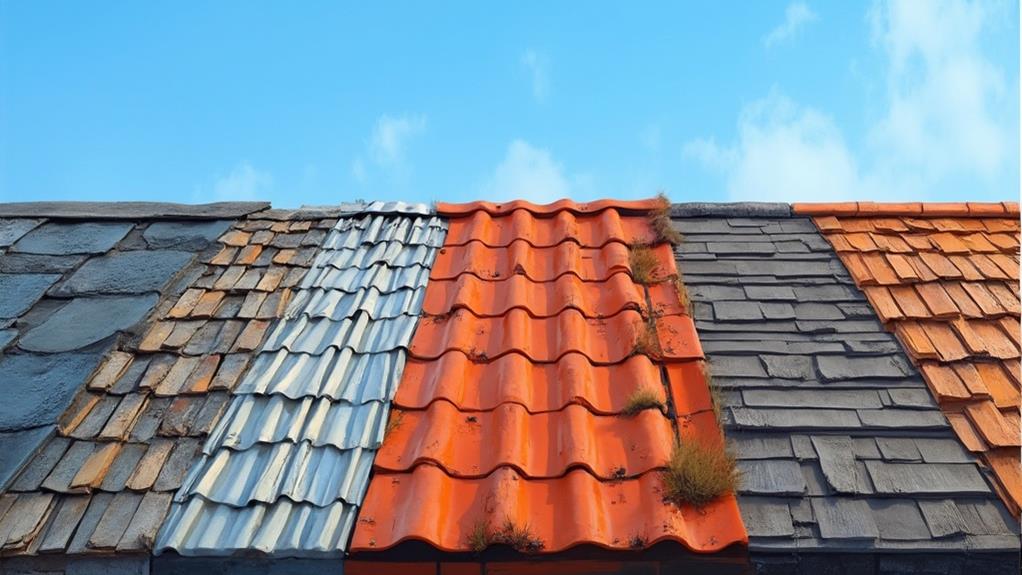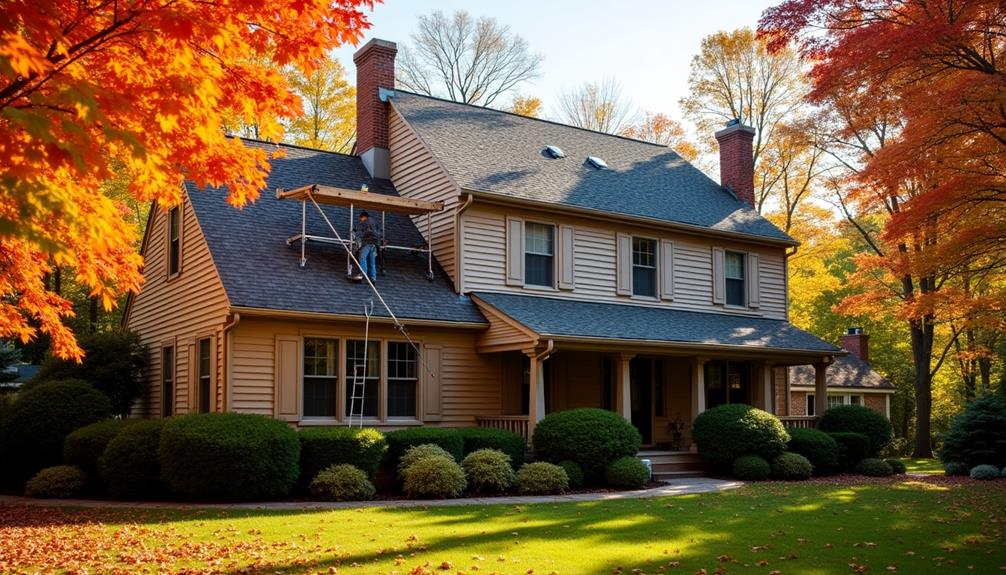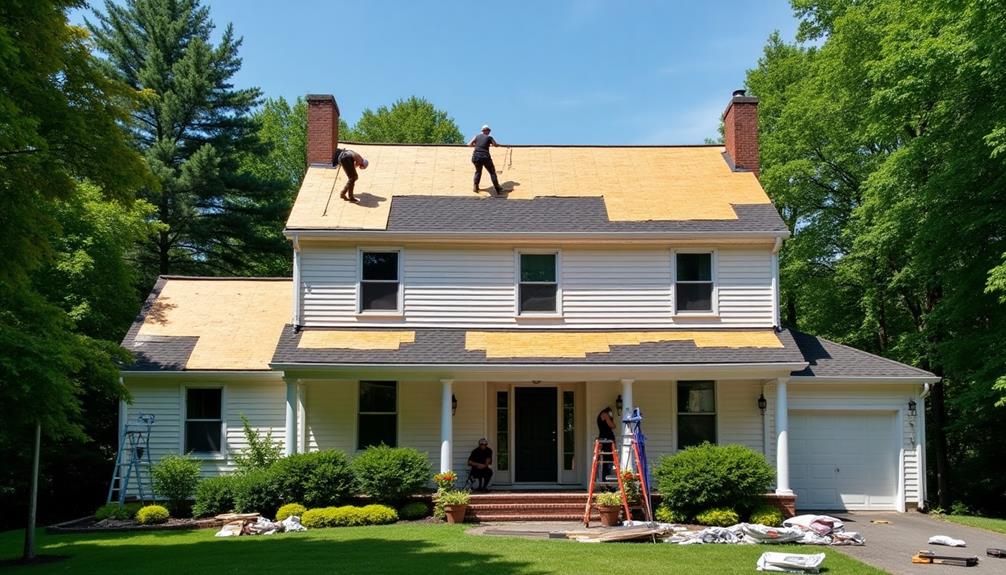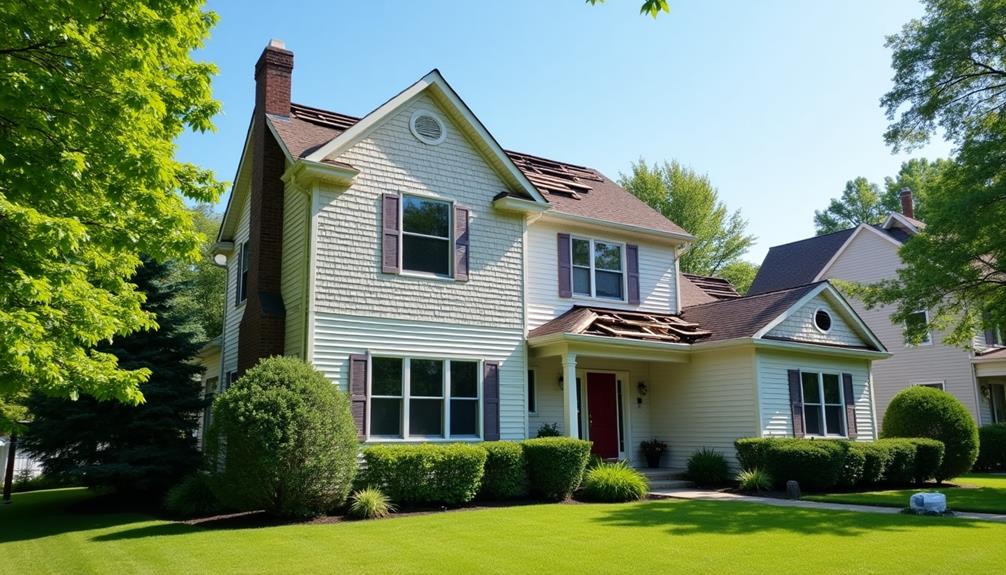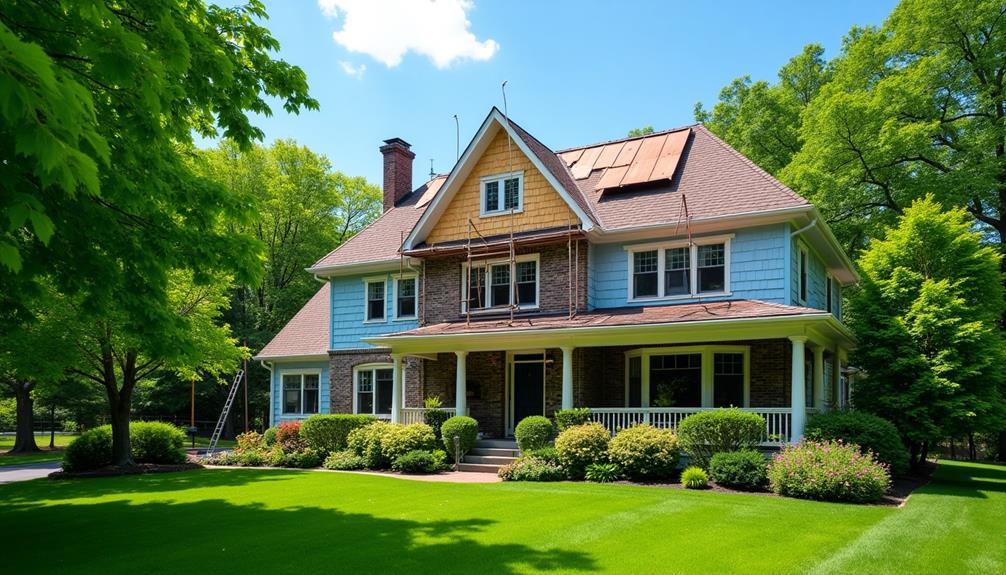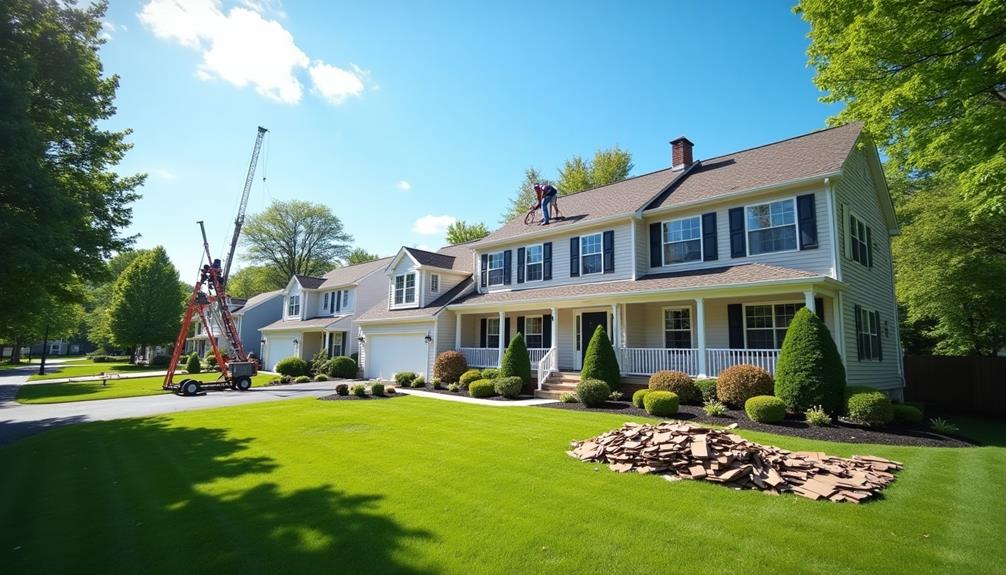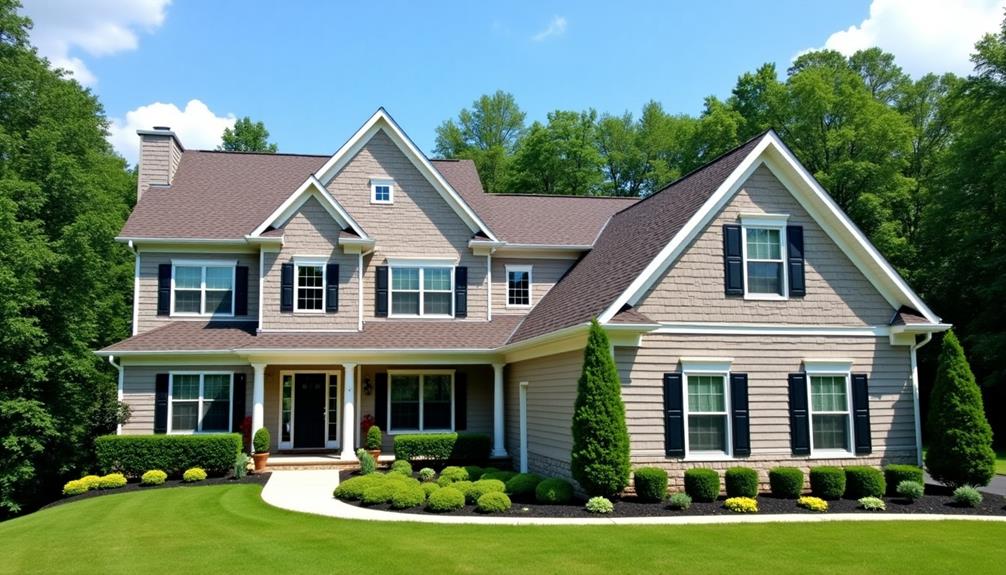When you're selecting roofing materials, durability and longevity are likely at the forefront of your mind. You might consider options like slate, metal, tile, wood shakes, and asphalt shingles, each with unique benefits and lifespans. For instance, some materials can withstand the test of time, offering protection for decades, while others may require more frequent replacements. Understanding the pros and cons of these choices can save you money and hassle in the long run. So, what factors should you weigh when deciding which material is right for your home?
Metal Roofing
When considering durable roofing options, metal roofing stands out as a top choice due to its impressive longevity and resilience. One of the primary metal roofing benefits is its remarkable lifespan; it can last 40 to 70 years, significantly outpacing traditional asphalt shingles. This durability translates into fewer replacements, saving you money in the long run.
Metal roofs are designed to withstand extreme weather conditions, including high winds, hail, and heavy snow. Their resistance to corrosion and rust ensures they maintain their functionality and aesthetic appeal over time.
Additionally, metal roofing reflects solar energy, which can lower your energy bills by keeping your home cooler in the summer.
When you think about metal roofing installation, it's crucial to choose experienced professionals. Proper installation is key to maximizing the roof's lifespan and performance.
A well-installed metal roof can minimize leaks and enhance insulation, providing added protection and comfort to your home.
Slate Roofing
Although many roofing materials offer durability, slate roofing is often regarded as one of the most resilient options available. This natural stone material can last over a century with minimal maintenance, making it a long-term investment for homeowners.
When considering slate, it's essential to understand the various installation techniques involved. Proper installation requires skilled labor, as the weight and fragility of slate demand expertise to avoid damage during the process.
Cost considerations are also crucial when evaluating slate roofing. While the upfront expense can be significantly higher than other materials, the longevity and low maintenance needs often justify the initial investment.
Additionally, slate comes in various grades, allowing you to choose a product that fits your budget while still delivering exceptional durability.
It's worth noting that slate's unique aesthetic adds value to your home, enhancing curb appeal. If you're looking for a roofing solution that combines durability, longevity, and elegance, slate roofing could be an excellent choice.
Just be prepared for the higher costs and ensure you hire experienced professionals for the installation to maximize its benefits.
Tile Roofing
Tile roofing stands out as another highly durable option for homeowners seeking longevity in their roofing materials. Known for its robustness, tile can withstand harsh weather conditions, including high winds and heavy rain.
When considering installation techniques, it's essential to ensure proper underlayment and ventilation to maximize the lifespan of your tiles. A skilled contractor will align tiles precisely to prevent leaks and ensure structural integrity.
To maintain your tile roof, regular inspections are crucial. Look for cracked or broken tiles, as these can compromise the roof's durability. Clean the roof periodically to remove debris, which can hold moisture and lead to mold growth.
Additionally, ensure that gutters are free-flowing to prevent water buildup. If you notice any issues, address them promptly to avoid costly repairs down the line.
While tile roofing may have a higher upfront cost, its longevity and low maintenance needs often make it a cost-effective choice over time. With the right installation techniques and consistent maintenance tips, you can enjoy a durable and aesthetically pleasing roof for decades.
Asphalt Shingles
Asphalt shingles are a popular choice among homeowners due to their balance of durability and affordability. With a typical asphalt lifespan of 15 to 30 years, they offer reliable protection against various weather conditions.
However, maximizing their longevity requires attention to maintenance. Regular inspections are essential; check for missing, curled, or damaged shingles. Addressing these issues promptly can prevent leaks and further deterioration.
Cleaning your roof at least twice a year helps remove debris, algae, and moss that can cause deterioration. Make sure gutters are clear to allow proper water drainage, as clogged gutters can lead to water pooling and shingle damage.
You should also ensure proper ventilation in your attic. This prevents heat buildup, which can warp shingles and reduce their lifespan.
If you live in an area with extreme weather, consider investing in impact-resistant options, which can withstand hail and high winds.
Wood Shakes
Wood shakes are an excellent choice for homeowners seeking a natural aesthetic combined with impressive durability. These roofing materials, typically made from cedar, redwood, or pine, can last 30 to 50 years when properly maintained.
To make the most of your wood shakes, it's essential to understand the right installation techniques and maintenance tips.
- Natural Insulation: Wood shakes provide excellent thermal insulation, helping you save on energy bills.
- Weather Resistant: They can withstand harsh weather conditions, including heavy rain and wind.
- Aesthetic Appeal: Their rustic charm enhances your home's curb appeal.
When installing wood shakes, ensure you use proper spacing and overlap to facilitate water runoff and prevent moisture accumulation.
As for maintenance, regular inspections for mold, rot, and insect damage are crucial. Cleaning the roof with a gentle solution can help maintain its natural appearance while extending its lifespan.

